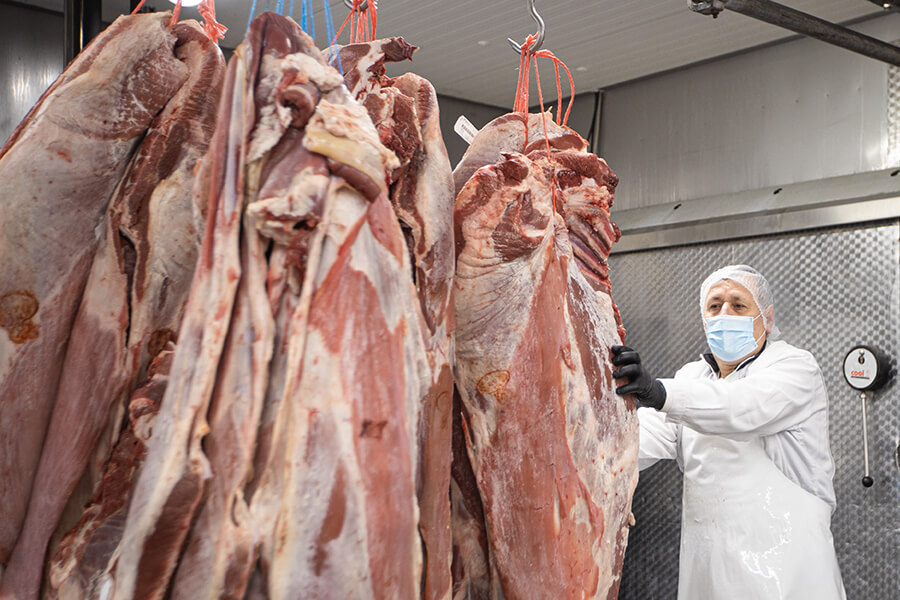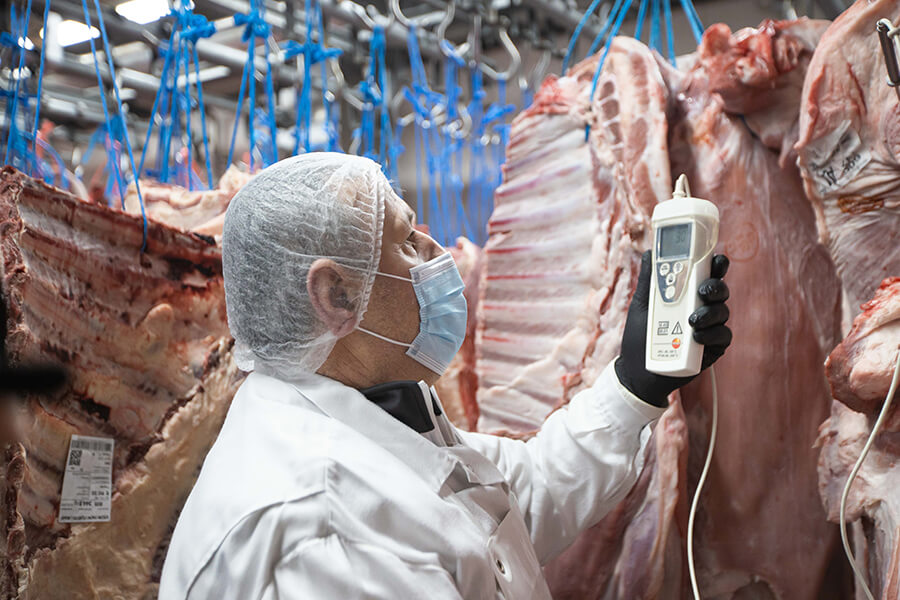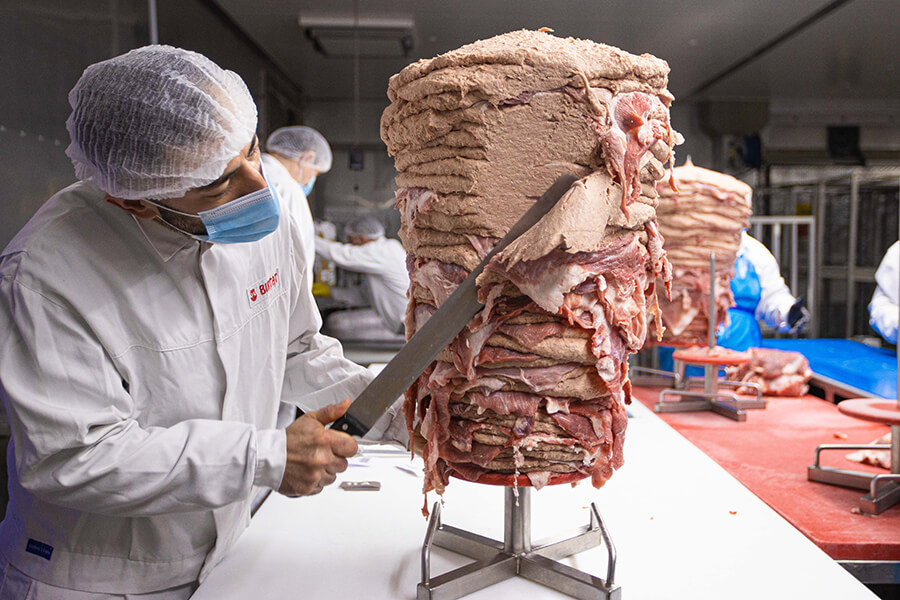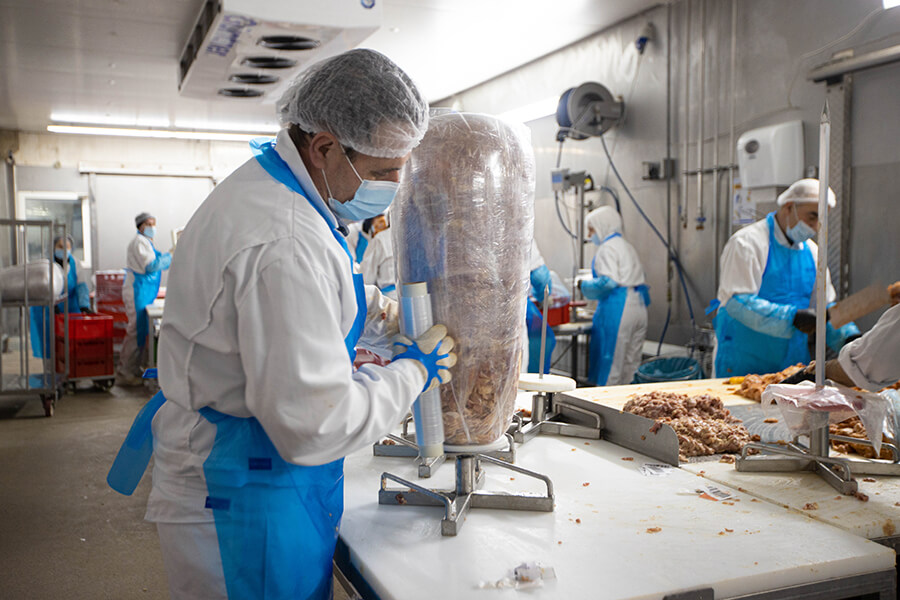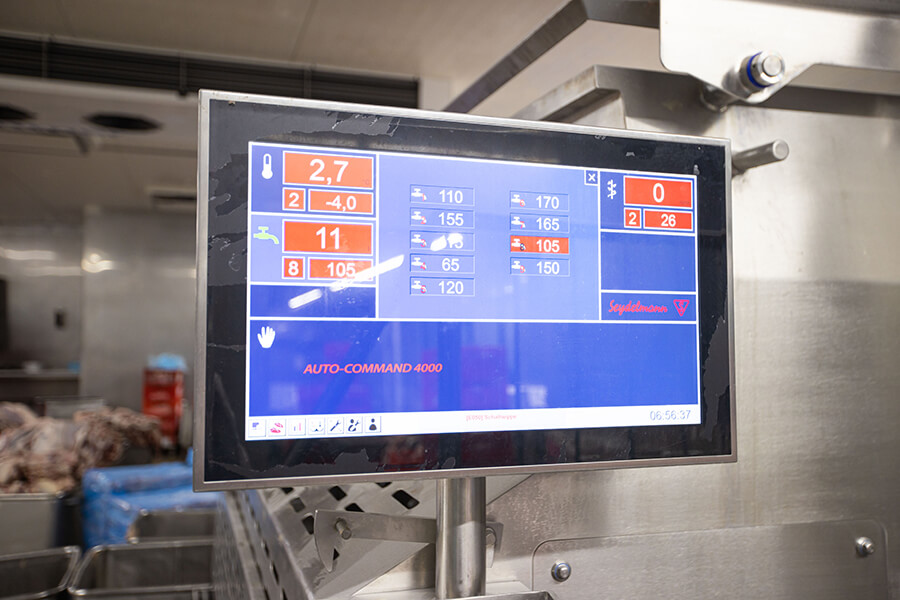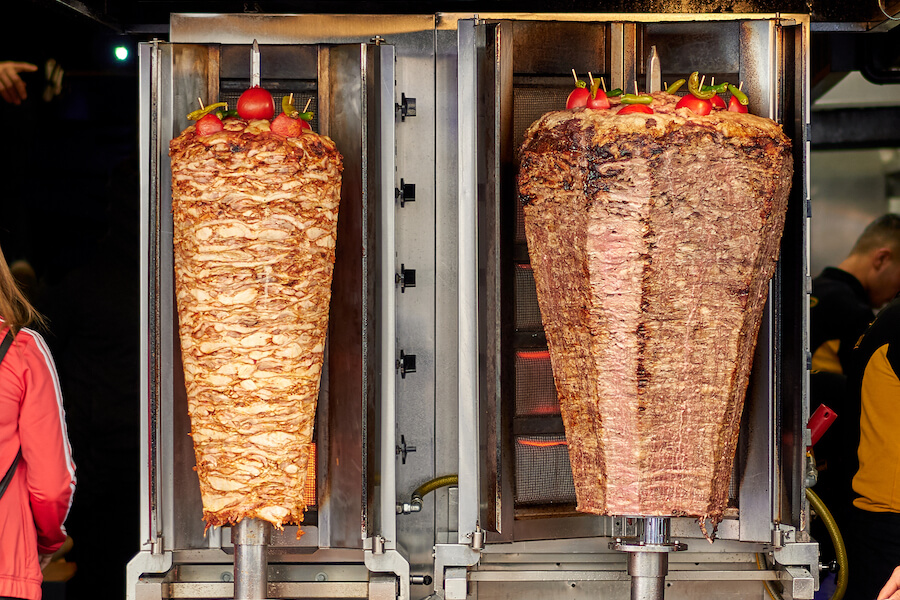Our kebab production abides by the highest quality standards. Only high-quality meat is used for our kebab skewers. For this reason, we only work with selected, EU-certified meat suppliers (IFS, BRC). We carefully inspect the frozen meat delivered to us at -18°C. Only meat that passes the quality control goes into production.
The meat is then processed and seasoned at +2°C. Subsequently, the meat is submitted to our trained and experienced staff, who attach it to the kebab skewers. Depending on the customer’s order, the staff assemble the kebab skewer with the respective meat mixture according to the requested size. Then the kebab skewer needs to be cut into the shape requested by the customer and wrapped in stretch film. Thereafter, it goes to shock freezing. Once the kebab skewer reaches the optimum core temperature of -20°C, it is ready for delivery.
1. INCOMING GOODS
Certified slaughterhouses deliver the meat to our warehouses.
2. TEMPERATURE CHECK, VISUAL INSPECTION
First, the temperature is checked. The cold chain must not be interrupted and must not rise above 2°C.
3. ATTACHMENT
First, the meat is prepared and marinated. Next, it is attached to the skewer. For the skewer to be shaped like a cone, it then needs to be smoothed.
4. WRAPPING
After the smoothing, the skewer is shaped with approx. 25 m of stretch film and labelled.
5. SHOCK FREEZING AT APPROX. -35°
The next step is the freezing stage. The kebab skewers are placed in the shock freezer for 18 hours. At approx. -35°C, the kebab stays fresh until it is delivered and mounted on the grill.
6. THE FINAL RESULT
The final result: a delicious doner kebab, ready to eat!
SHOCK FREEZING
Industrial shock freezing refers to the process of deep-freezing food at about -35°C within a very short time. The water contained in the food – in this case the water in the kebab skewer – expands and merely forms very small ice crystals between the cell walls, which do not damage the food’s cell structure. In comparison, the relatively high temperatures in household freezers cause large, slow-growing ice crystals to form during freezing. Using such temperatures would damage the cell structures in the kebab skewer, resulting in a loss of quality.
Since the cells remain intact, important ingredients such as vitamins and minerals as well as the flavour and texture are protected. The industrial freezing process thus ensures that the kebab skewer remains fresh and juicy. Shock freezing stops the cell metabolism. Therefore, microorganisms can no longer multiply, and our deep-frozen kebab skewers remain hygienically flawless and have a very long shelf life.
